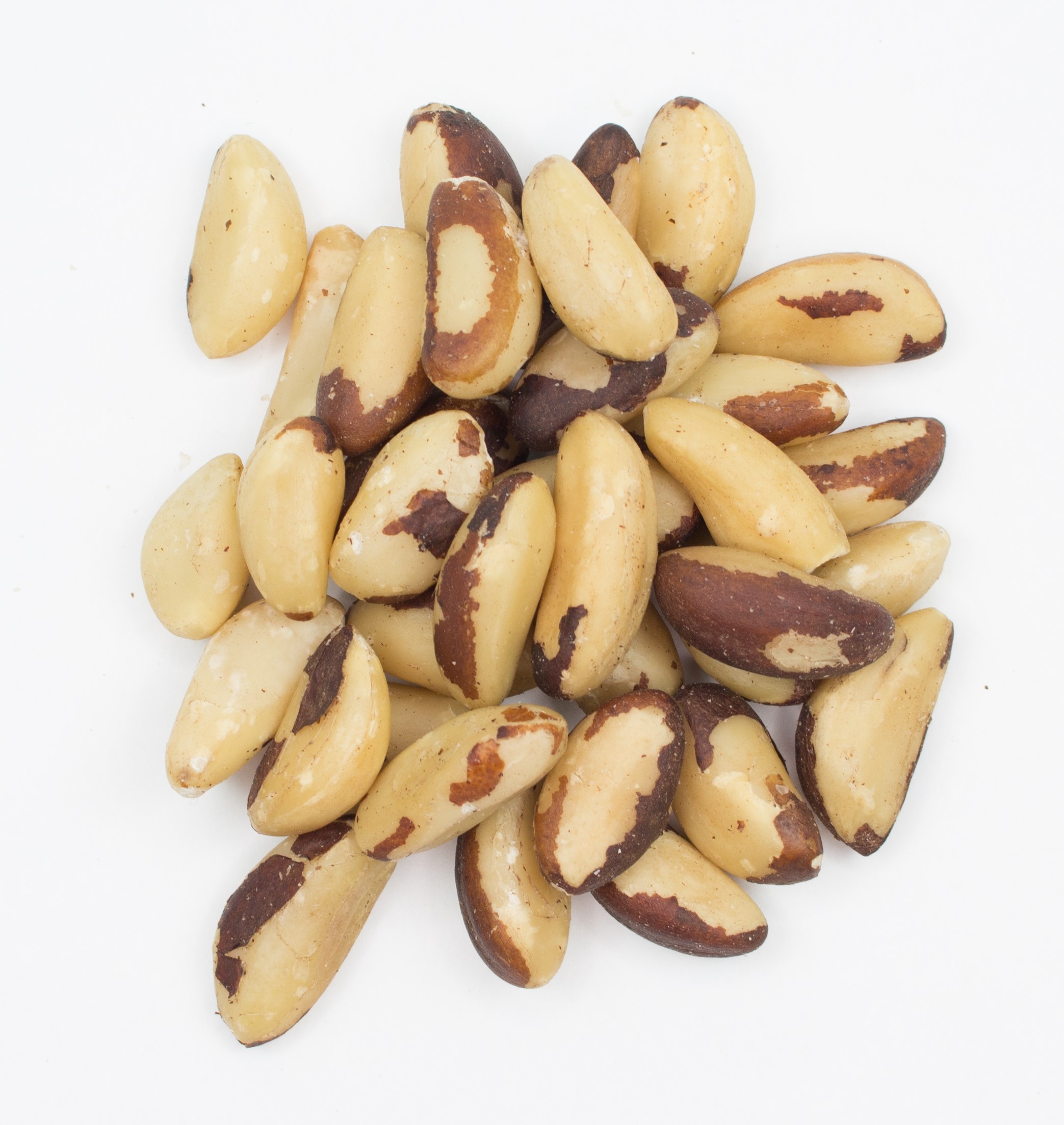Brazil Nuts
Brazil nuts are among the richest dietary sources of selenium, an essential mineral with antioxidant properties. Selenium plays an important role in reproduction, metabolism, and immune health.
A single Brazil nut contains 68 to 91 micrograms (mcg) of selenium, meaning that just one nut per day can provide the daily recommended adult allowance of 55 mcg.
In addition to selenium, Brazil nuts contain plenty of protein, essential minerals, and healthful fats.
Brazil nuts may provide some impressive health benefits, but it is best to eat them in moderation.

HEALTH BENEFIT
Brazil nuts contain healthful fats called polyunsaturated and monounsaturated fatty acids.
According to the American Heart Association (AHA), consuming monounsaturated fats and polyunsaturated fats instead of saturated and trans fats helps improve cholesterol levels, which lowers the risk of heart disease and stroke.
Brazil nuts also provide dietary fiber. The AHA report that eating fiber-rich foods improves blood cholesterol levels and lowers the risk of heart disease, stroke, obesity, and type 2 diabetes.
Brazil nuts have powerful antioxidant effects, which may boost brain functioning and help keep the brain healthy.
Selenium deficiency can cause hormonal imbalances that can negatively affect sleep, mood, concentration, and metabolism.
Selenium plays an essential role in hormone production. The thyroid gland uses selenium to convert thyroxine hormone (T4) into its active form, triiodothyronine hormone (T3).
Brazil nuts is an excellent source of of selenium, and sufficient amounts of selenium prevent or help regulate thyroid problems, such as hypothyroidism.
SELECTION & STORAGE
Store in cool and dry conditions in an airtight container. Avoid exposure to strong odors as nuts can absorb odors of other materials if exposed for prolonged periods.
PREPARATION & SERVING METHOD
People can eat whole Brazil nuts as a snack or add them to other foods. Brazil nuts are fine to eat raw or roasted.
To cook Brazil nuts on the stovetop:
- Place a layer of Brazil nuts in a skillet over medium heat.
- Stir the nuts every minute or so to avoid burning them.
- Continue cooking for about 5 to 10 minutes until the nuts become aromatic.
To roast Brazil nuts in the oven:
- Preheat the oven to 350°F.
- Place the nuts on a layer of parchment paper on a baking sheet.
- Place the baking sheet in the preheated oven and roast for 5 minutes.
- Remove the baking sheet and stir the nuts.
- Return the baking sheet to the oven for another 5 minutes.
- Remove the nuts from the oven and season them with salt, herbs, or spices.
- Allow the nuts to cool completely before eating them.
People can try adding Brazil nuts to pad Thai dishes, trail mixes, or pesto. Alternatively, they can use chopped Brazil nuts as a nutritious topping for oatmeal, salads, or even brownies.
SAFETY PROFILE
When it comes to Brazil nuts, more is not necessarily better. People should limit their intake of Brazil nuts to a few per day to avoid negative side effects. Brazil nuts are high in calories, and eating too many can cause selenium toxicity.
Like most nuts, Brazil nuts are very calorie-dense. People who eat too many Brazil nuts run the risk of exceeding their daily recommended calorie intake. Consuming too many calories can cause unwanted weight gain.
As a member of the tree nut family, Brazil nuts may cause allergic reactions in some people. According to the American College of Allergy, Asthma & Immunology, an estimated 25 to 40 percent of people who have a peanut allergy react to at least one type of tree nut.
Many of the health benefits of Brazil nuts come from their high selenium content. Although beneficial in small quantities, Brazil nuts could cause selenium toxicity if a person regularly eats them in large numbers.


